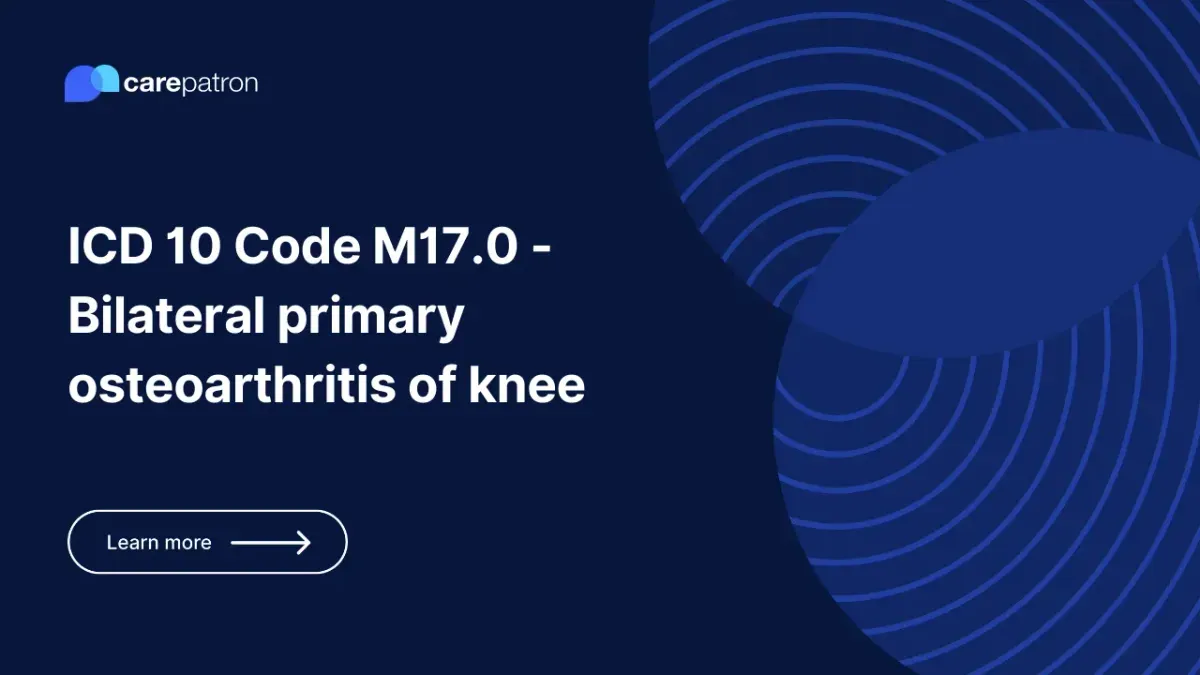
M17.0 – Bilateral primary osteoarthritis of knee
Find out more about ICD Code M17.0—Bilateral primary osteoarthritis of the knee. Our brief guide discusses clinical information, synonyms, and relevant codes.
Use Code
EHR and practice management software
Get started for free
*No credit card required
Free
$0/usd
Unlimited clients
Telehealth
1GB of storage
Client portal text
Automated billing and online payments
